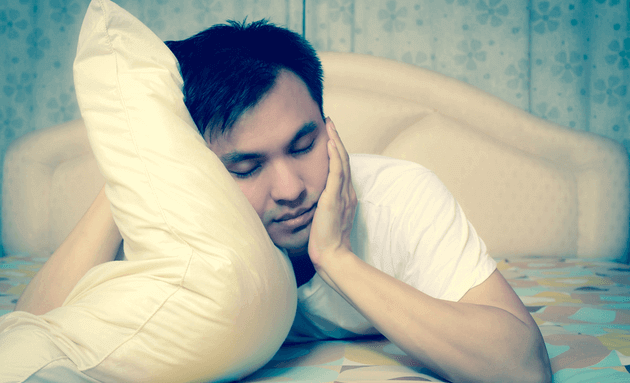Why Am I Not Losing Weight ? 8 Reasons Why, Losing Weight Ttips
India’s public health condition is a study in contradiction. Given the fact that our country has more than 194 million undernourished people, a nationwide epidemic of poor health due to seemingly lifestyle-driven problems like excess body weight can seem rather ironic at the outset.
Our failure to lose weight is usually attributed to a host of primary reasons, ranging from poor diets to inadequate exercise routines. Read on to learn why your attempts to lose weight might not always deliver the intended results.
Are You Getting the Right Kind of Exercise?

While it might seem that we have become more serious about fitness than ever, the truth of the matter is that only 11% of all Indians actually use the gym after signing up for a membership. The average Indian, as a matter of fact, only manages to get a mere 19 minutes of exercise in a day, as opposed to a minimum recommendation of 30 minutes of physical activity.
Irregular exercise coupled with ill-informed ideas about healthy living, whether its the idea that “ breakfast is the most important meal of the day” to the myth or that “exercising on an empty stomach can help burn fat faster” can serve as an effective deterrent to our fitness goals.
The first step in your journey to sustainable weight loss, therefore, is to stay clear of fad diets and instead consult specialists to design holistic strategies that can help you find and maintain a healthy balance between the calories you consume and shed.
7 Reasons You Aren't Losing Weight Despite Your Best Efforts
Still struggling to lose weight despite exercising? Here are some reasons why your exercise efforts may not be reaping their intended results.
You’re Not Getting Enough Sleep

You're less likely to exercise or go to the gym if you're sleep-deprived.
The lack of sleep can leave you physically hungry due to two hormones: Ghrelin and Leptin. Ghrelin signals hunger and Leptin is responsible for stopping it. Low secretions of leptin (due to sleep deprivation) can slow down your metabolism and leave you with constant feelings of hunger. Sleep deprivation can also affect the secretion of cortisol, one of the hormones that regulate your appetite.2. You’re Not Making the Right Diet Choices
Consistently binging on unhealthy or junk food on the weekend could be hurting your weight loss goals. Research suggests that exercise alone may not contribute to substantial weight loss, without sufficient changes to the diet.
This doesn’t mean you can’t treat yourself at all. The most effective diets have significant variety and are balanced with the right amounts of Protein, Fat, and Carbohydrates.3. You’re Not Controlling Your Calorie Intake

Most people who have difficulty losing weight are simply eating too many calories. An important factor in weight loss is how many calories you're eating versus how many calories you're burning. It may seem easy, but if you're not tracking your calories each day, you may be consuming more than you think.4. You’re Not Drinking Enough Water
Drinking a glass of water before your meals can benefit weight loss. In one 12-week weight loss study, people who drank half a litre of water 30 minutes before meals lost 44% more weight than those who did not. So make it a point to drink plenty of water during the day.5. You’re Over-Exercising

One of the main reasons why burning calories through exercise may still not result in weight loss is due to overexertion, or inflammation of your body. If you exercise too hard on a daily basis, there is an excess of inflammation in your body. All the added up inflammation makes you gain more weight than lose.
Additionally, your body eventually adapts to your workout regime and becomes more efficient, spending fewer calories and slowing down your weight loss progress. This is known as the weight loss plateau and hinders your weight loss.6. Know Your Metabolic Rate
Your Resting Metabolic Rate defines the number of calories you burn by all the activities you carry out in 24-hours. Knowledge of your Resting Metabolic Rate will allow you to calculate the actual amount of calories you need in a given day. You can then create a calorie or energy deficit by adjusting your dietary intake with the amount of exercise you undertake on any given day.
It is important to note that this strategy can be counterproductive to your weight loss attempts if you fail to give your body its daily minimum amount of calories. Such deficits will force your body to go into conservation mode and burn less energy thus negating any weight loss attempts.7. You Have Other Health Conditions

There are some medical conditions that can drive weight gain and make it much harder to lose weight. These include hypothyroidism, polycystic ovarian syndrome (PCOS) and sleep apnea. Certain medications can also make weight loss harder, or even cause weight gain. If you think any of these apply to you, speak to your doctor about your options.
Simple Changes That Can Help You Lose Weight
Choose Your Diet Carefully
Consult your dietician to make an ideal weight loss diet for your body. You can start this by tracking your daily intake of proteins, fats, and carbohydrates (PFC Diet). You can supplement this balanced diet by ensuring that these three groups are sourced from whole and organic sources.Sleep Well

Poor quality or insufficient sleep may affect weight loss. Studies show that poor sleep can increase the risk of obesity and diabetes. It is also possible that a lack of sleep can disrupt the body's ability to regulate hunger. According to the National Sleep Foundation, adults aged 18–65 should aim for 7–9 hours of sleep per night. Older adults should aim for 7–8 hours.Get the Right Amount of Exercise
Not all types of exercise are created equal. Some forms of exercise can actually be counter-productive and cause inflammation in your body. This can not only stress your metabolism but also stimulate the release of stress hormones like cortisol. This will essentially set off a chain reaction of events that can raise your body weight due to spikes in your blood sugar levels. You can counter this by taking occasional breaks from intense workouts and mix your workout with softer low-intensity routines like yoga.
A big takeaway about exercise, like most things, is that its about balance.

While it is important to remain consistent during your weight loss journey, it is equally important to avoid the temptation of evaluating the success of your efforts on metrics like overall kg’s lost from start to finish. Remember that your body can sometimes make changes that a scale can't measure, so evaluating your physical fitness on how much weight you lose can be a disservice to your efforts.
Make it a point to focus your efforts on intensity as much as frequency and round it out with adequate rest and balanced eating and your body will thank you by letting go of those excess kilos.

